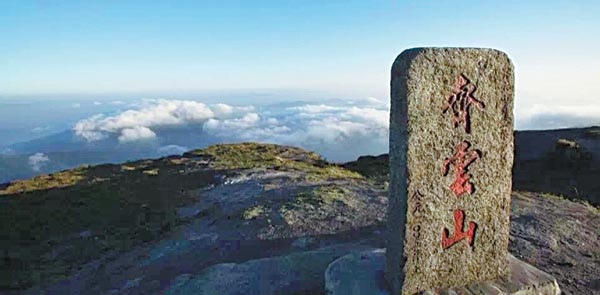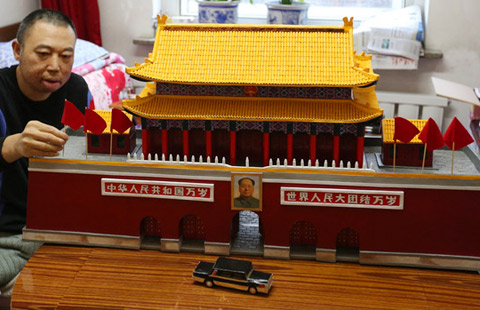 |
|
Qiyun, the Taoism mountain attracts many famous Taoism practitioners. Photo provided to China Daily
|
Among more than 1,500 carvings, only 538 of them have survived. When I arrived at the Elephant's Nose Rock, I saw dozens of carvings on the cliffs around me in different styles of calligraphies from different dynasties. Some are vigorous and majestic, while some are elegant and gentle.
On the top of the mountain, I looked down to see a green field in the shape of eight giant diagrams at the foot. It was actually a sunflower field. When the flowers were in full blossom in August, many tourists came to take photos and walk in the flower labyrinths.
My guide told me that the seven villages that are scattered at the foot of the mountain are like the seven stars of the Charles's Wain. The Hengjiang River that runs along the foot of the mountain is in the shape of letter "S", and together with the two banks, comprise a natural diagram of tai chi. In 2013, Xiuning county received more than 3.34 million visitors, with an increase of 3.35 percent compared with 2012.
To draw more tourists, the local government is repairing the Taoism temple on Qiyun Mountain and constructing a new service center and parking lots, and developing new itineraries for the Number One Scholar culture experience tour.


 South China's 'little Africa'
South China's 'little Africa'
 Trending: Eiffel Tower replica in Hangzhou
Trending: Eiffel Tower replica in Hangzhou
 Detailed models made from rice and trash
Detailed models made from rice and trash
 China, South Africa sign economic pacts
China, South Africa sign economic pacts
 Across America over the week (Nov 28- Dec 4)
Across America over the week (Nov 28- Dec 4)
 US official praises China's role in counter-piracy
US official praises China's role in counter-piracy
 Film takes on Chinese stereotypes in US
Film takes on Chinese stereotypes in US
 World news pictures of the year 2014
World news pictures of the year 2014












